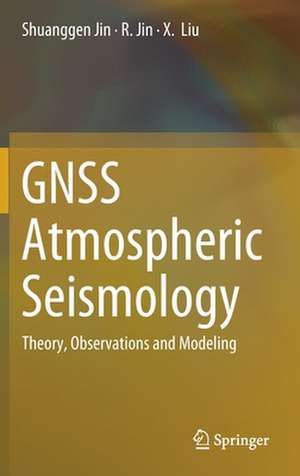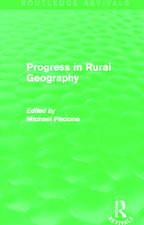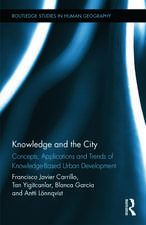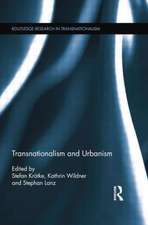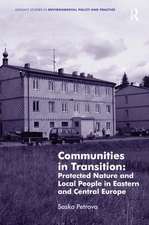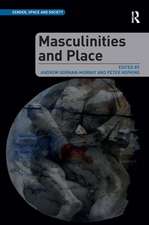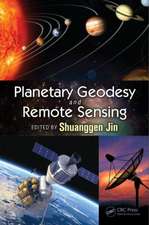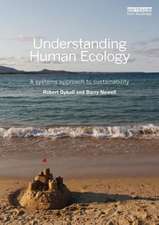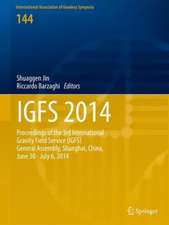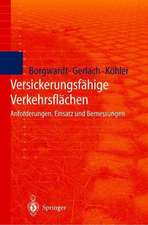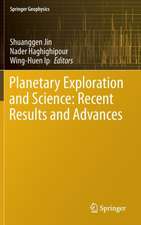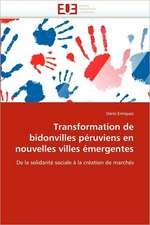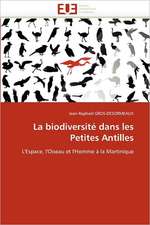GNSS Atmospheric Seismology: Theory, Observations and Modeling
Autor Shuanggen Jin, R. Jin, X. Liuen Limba Engleză Hardback – 13 iun 2019
Preț: 705.00 lei
Preț vechi: 829.42 lei
-15% Nou
Puncte Express: 1058
Preț estimativ în valută:
134.90€ • 141.20$ • 112.28£
134.90€ • 141.20$ • 112.28£
Carte tipărită la comandă
Livrare economică 31 martie-14 aprilie
Preluare comenzi: 021 569.72.76
Specificații
ISBN-13: 9789811031762
ISBN-10: 9811031762
Pagini: 322
Ilustrații: XVI, 315 p. 153 illus., 143 illus. in color.
Dimensiuni: 155 x 235 mm
Greutate: 0.64 kg
Ediția:1st ed. 2019
Editura: Springer Nature Singapore
Colecția Springer
Locul publicării:Singapore, Singapore
ISBN-10: 9811031762
Pagini: 322
Ilustrații: XVI, 315 p. 153 illus., 143 illus. in color.
Dimensiuni: 155 x 235 mm
Greutate: 0.64 kg
Ediția:1st ed. 2019
Editura: Springer Nature Singapore
Colecția Springer
Locul publicării:Singapore, Singapore
Cuprins
Introduction.- Atmospheric Changes and Observations.- Atmospheric Changes and Observations.- GNSS Ionospheric Sounding.- Detection methods for ionospheric disturbances.- Seismic lower-atmospheric anomalies.- Pre-seismic Ionospheric Anomalies.- Co-/Post-seismic Ionospheric Disturbances.- Two-mode seismo-ionospheric disturbances.- Seismo-ionospheric Rayleigh waves.- Epicenter from Ionospheric Disturbances.- Tsunami Ionospheric Disturbances.- Volcano Atmospheric Disturbances.- Volcanic Plumes Detection from GNSS SNR.- Summary and Prospective.- Index.
Notă biografică
Shuanggen Jin is Professor at the Shanghai Astronomical Observatory, CAS, and Professor and Dean at School of Remote Sensing and Geomatics Engineering, Nanjing University of Information Science and Technology, China. He received the B.Sc degree in Geodesy from Wuhan University in 1999 and the Ph.D degree in Geodesy from University of Chinese Academy of Sciences in 2003. His main research areas include Satellite Navigation, Remote Sensing, Space Geodesy, Climate Change and Space/Planetary Exploration. He has published over 400 papers in JGR, IEEE, EPSL, GJI, JG etc. with more than 4500 citations and H-index>40, 10 books/monographs and 8 patents/software copyrights. He has been President of International Association of Planetary Sciences (IAPS) (2013-2017), President of the International Association of CPGPS (2016-2017), Chair of IUGG Union Commission on Planetary Sciences (UCPS) (2015-2019), Vice-President of the IAG Commission 2 (2015-2019), Editor-in-Chief of International Journal of Geosciences (2010-), Associate Editor of IEEE Transactions on Geoscience and Remote Sensing (2014-), Journal of Navigation (2014-), Advances in Space Research (2013-2017), Editorial Board member of Remote Sensing (2017-), GPS Solutions (2016-), Journal of Geodynamics (2014-) and Planetary and Space Science (2014-). He has received 100-Talent Program of CAS (2010), Fellow of International Association of Geodesy (IAG) (2011), Jiangsu Distinguished Professor (2018), Fu Chengyi Award of Chinese Geophysical Society (2012), First Prize of Satellite Navigation and Positioning Progress Award (2017), Member of Russian Academy of Natural Sciences (2017-), First Prize of China Overseas Chinese Contribution Award (2018), Members of European Academy of Sciences (2018-), and Fellow of International Union of Geodesy and Geophysics (IUGG) (2019).
Textul de pe ultima copertă
GNSS can detect the seismic atmospheric-ionospheric variations, which can be used to investigate the seismo-atmospheric disturbance characteristics and provide insights on the earthquake. This book presents the theory, methods, results, and modeling of GNSS atmospheric seismology. Sesimo-tropospheric anomalies, Pre-/Co-/Post-seismic ionospheric disturbances, epicenter estimation, tsunami and volcano ionospheric disturbances, and volcanic plumes detection with GNSS will be presented and discussed per chapter in the book.
Caracteristici
Offers a new seismo-atmospheric disturbance method to monitor and understand earthquakes Includes detailed GNSS atmospheric disturbances following the earthquake, tsunami and volcano Presents the theory, methods, results, and modeling of GNSS atmospheric seismology
